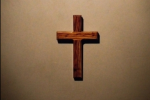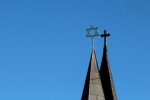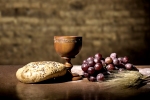June 20, 2023
Becoming a Beloved Community

The work of Racial Justice and Reconciliation is hard but necessary for us to, indeed, be a beloved community.
As Christians, we believe that we are all created in the image and likeness of God. Jesus came down to earth and reaffirmed that fact with his message of love. This message was so powerful that he even got in trouble with many of the leaders of his day. When asked what the greatest commandment is, he answered, “You shall love the Lord your God with all your heart and with all your soul and with all your mind.This is the greatest and first commandment. And a second is like it: ‘You shall love your neighbor as yourself. On these two commandments hang all the Law and the Prophets.” (Matthew 22: 36-40)
Yet, we still have division and hatred in our world. So why is it so hard to love one another?
I have pondered this question most of my entire life. I grew up in a predominantly Latino community in San Francisco’s Mission District. Within this tight community, we also had people of various races, religions, and colors. We celebrated people’s differences and enjoyed learning from each other. We danced to the music of different countries and ate fantastic food from other cultures. We would never use the term “melting pot” because that is what we did not want to be. We did not want others to assimilate; we celebrated our differences.
The color of your skin, the shape of your eyes, or the sound of your accent was not wrong or weird. It made you, you! And in appreciating our differences, we thanked God for being so wonderful in creating such a diverse world. Our lives were never dull. They were filled with color, culture, and love for life. Indeed, life was good being in community.
However, that changed when I ventured outside the Mission District. I began to experience racism and discrimination in many places and settings, even without warning. I noticed people looking at me differently as if they had hatred in their eyes; store clerks would follow me around stores when I went shopping; I was often passed over for jobs because of “fit,” or white folks in cars would yell out their windows telling me to “go back to where you came from! Or go to hell!” — what is it because I was Latino or queer? Or maybe because of both. Why would people judge and despise me without knowing me?
Racism, like any disease, can become deadly if not treated. We have witnessed the killings of George Floyd, Breonna Taylor, Tyre Nichols, and Alex Nieto. And in border states, we see vigilantes shooting people seeking a new life. These “border protectors” even go so far as to dump out water bottles left by angels to help people on their journeys through the desert heat. Yet many who do the shooting and dump out the water so that others can suffer in the heat would consider themselves good people.
As Christians, we attend services on Sundays and offer our prayers to God through the Prayers of the People — hoping and praying that the killings and pain will cease. However, I often ask myself, is it God’s job to bring us this peace, or is it our responsibility to do our part in stopping the hatred and violence that plague our cities, nation, and world by truly being a follower of Jesus and loving each other?
As a deacon within the Episcopal branch of the Jesus movement, I hope to do my part to love and encourage others to do the same. This effort takes work— honest work. It takes looking into the mirror and asking what kind of Christian I want to be. Moreover, as a member of the Church, I ask how we can reckon and work to reconcile our past and current actions that affect our present and future.
Lao Tzu once wrote, “Watch your thoughts, they become your words; watch your words, they become your actions; watch your actions, they become your habits; watch your habits, they become your character; watch your character, it becomes your destiny.”
The world can seem so dark and hopeless. But I believe that we have been called for this moment. Remember, light is the only thing that disrupts darkness, and only love conquers hate. As a Church, we can be the light of love that our communities, country, and world needs.
Yes. The work of racial justice and reconciliation can be hard and painful at times, but it is worth it.
I know that we will become a beloved community. And we will rejoice in the beautiful and diverse peoples and world our God has created. One day, we will realize that it was by loving others that we fully loved God.





